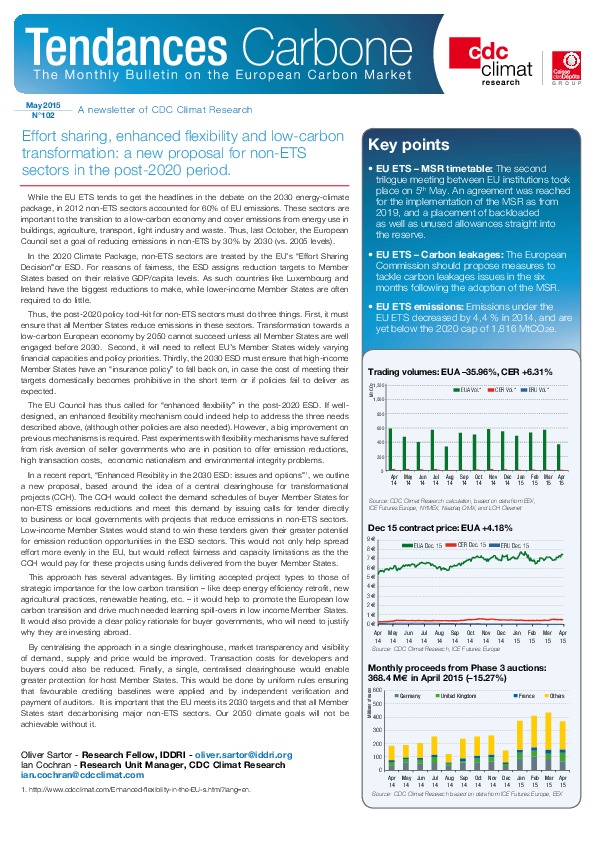Effort sharing, enhanced flexibility and low-carbon transformation: a new proposal for non-ETS sectors in the post-2020 period
- EU ETS – MSR timetable: The second trilogue meeting between EU institutions took place on 5th May. An agreement was reached for the implementation of the MSR as from 2019, and a placement of backloaded as well as unused allowances straight into the reserve.
- EU ETS – Carbon leakages: The European Commission should propose measures to tackle carbon leakages issues in the six
months following the adoption of the MSR. - EU ETS emissions: Emissions under the EU ETS decreased by 4,4 % in 2014, and are yet below the 2020 cap of 1,816 MtCO2e.
